Hotel of the future: how your phone will be your room key
With NFC locks, you can book your hotel and walk right into your room – and that's just the start
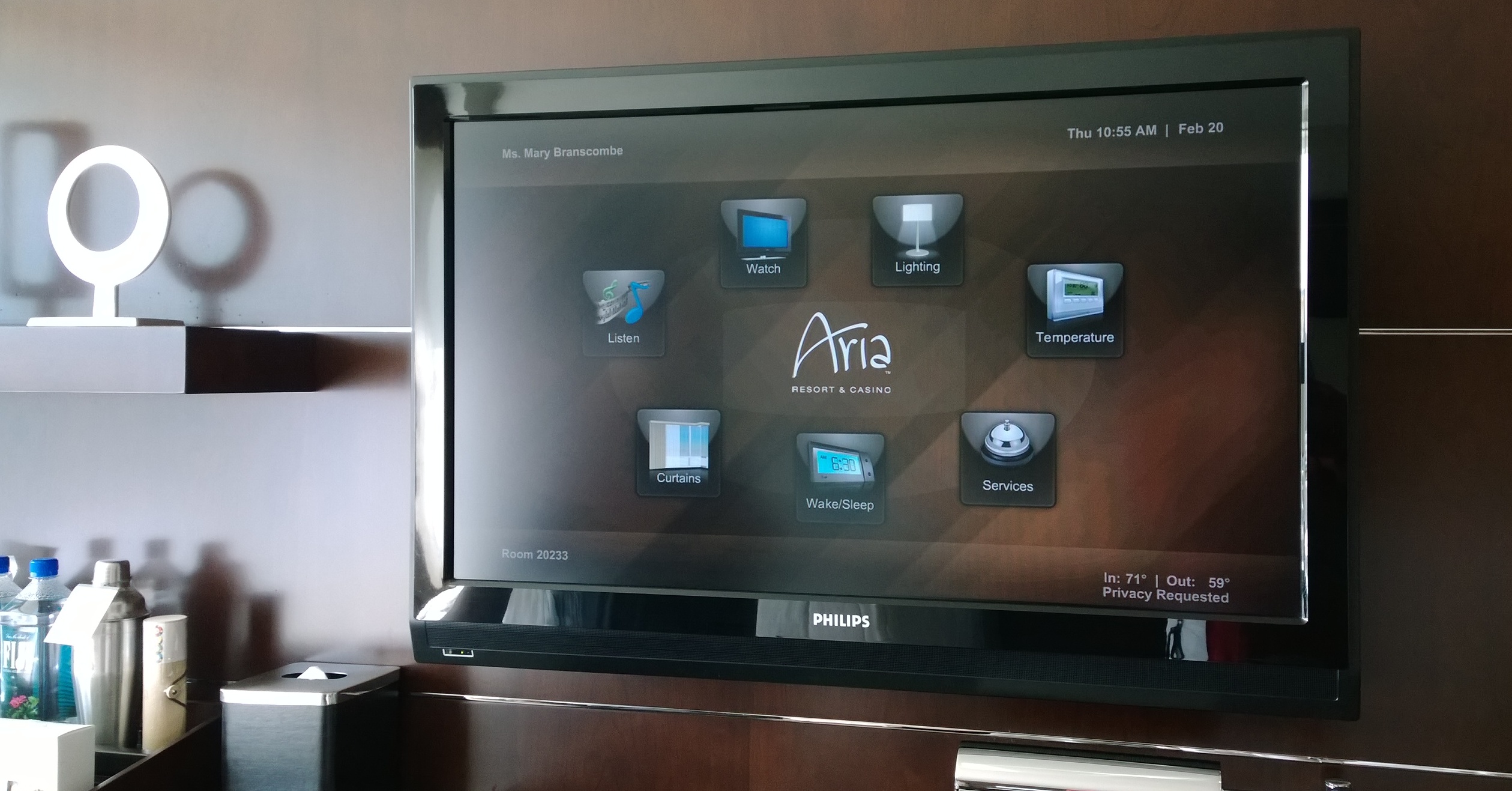
Sign up for breaking news, reviews, opinion, top tech deals, and more.
You are now subscribed
Your newsletter sign-up was successful
You can check in for your flight on your phone and get a digital boarding pass. So why should you have to show your credit card at hotel reception when they already have your booking details?
A few hotels such as Hyatt have put check-in kiosks in the lobby where you can swipe your credit card and get your key, but as NFC locks become more common on hotel doors, you could soon be skipping that step entirely. You could check-in on your phone before you even arrive at the hotel, and then use the NFC chip in your phone as your room door key.
Skip the queue
Travellers could skip the line and walk straight into the hotel and go right to their room. Hotels would appreciate it because not only would it make their customers happier, they would also avoid having to cover the expense of lost and unreturned key cards. Like hotel keycards that are rejected by door locks after your checkout date, the app on your phone would just delete the NFC code for the room when you checked out. You could even do this from your phone, instead of using the TV remote to check your bill and laboriously type in your email address.
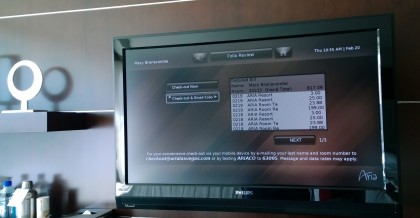
Hotels could also offer extra services through the app, like letting you pick a specific room from what's available, so you could choose what floor you want and how close you want to be to the elevator.
Guests could rate specific rooms in the app and you could look back to see if a room you'd been happy with on a previous stay was available. Popular rooms could become like exit row seats on a plane – reserved for frequent travellers or available for an upgrade fee – and the hotel could sell you a room upgrade or a faster internet package at the same time.
Set the temp
You could set the air conditioning temperature at the same time, along with any other room controls. The Aria hotel in Las Vegas already puts a Control4 room control tablet on the nightstand. This lets you open and close the curtains and blackout blinds, change the light levels around the room and choreograph wake-up and goodnight sequences that control the lights, curtains and TV to help you wake up or drop off more easily.
That would be easier on your phone than on the clunky tablet or TV remote, and you could do it whenever you wanted, rather than when you're tired and just want to jump into bed.
Sign up for breaking news, reviews, opinion, top tech deals, and more.
Hotels want you to install their phone apps and keep them on your phone after you leave, so they can carry on reaching you with special offers that might keep you coming back. The more useful the app is while you're actually at the hotel, the more likely you are to keep it. And if you have the incentive of a faster check-in, you're more likely to actually install the app.
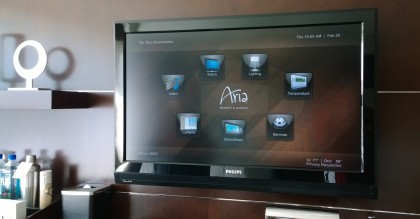
The app would also let you order room service, book a treatment at the spa or pay for a drink in the hotel bar, not to mention give you a map of where the pool is. Some apps let you book a table at a nearby restaurant – and the hotel gets a cut.
Dual investment
Making phone check-in workable needs two investments by hotels. The first is fitting hotel rooms with NFC. You won't find them in a budget motel like a Travelodge (yet), but NFC locks are already in a wide range of hotels.
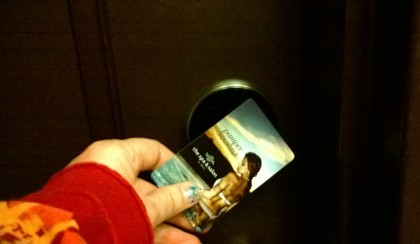
Business hotel Hyatts also uses NFC in the room card to send the lift to the right floor for you automatically, which saves time and electricity by putting people going to the same floor in the same lift.
Nordic Choice Hotels was the first chain to let guests select and unlock rooms with an NFC phone back in 2010, and started putting NFC locks into its hotels in 2013. Even mid-price chain hotels like Best Western have them installed in many locations already.
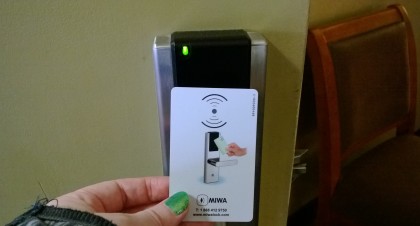
NFC also involves connecting apps up to room management systems that know which rooms have been cleaned and are ready to use. Micro PMS is working on this for its own management service, which is also used by Marriott, Four Seasons, Omni and about 75% of all three-star hotels.
That's what travel app creators like Ve-Go are counting on, but they're going to face stiff competition from hotel brand apps.
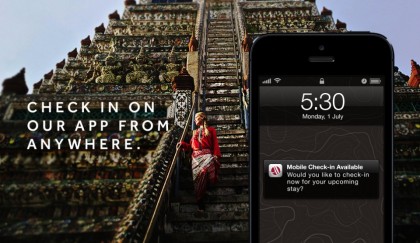
Currently the mobile check-in in Marriott's app lets you check-in the day before you arrive. It then gives you a message when your room is ready so you can pick up the pre-made keycard at the reception desk (and check out from your phone at the end of your stay). With NFC, you won't need to stop in the lobby to grab the keycard.
Monkey wrench
The flaw in the plan is the iPhone, which doesn't support NFC. Despite persistent rumours, Apple doesn't seem interested in the technology.
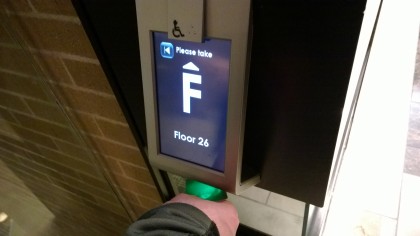
Rather than expecting iPhone users to snap on an NFC-enabling jacket, hotels and hotel lock-makers will probably have to invest in Apple's iBeacon technology to work alongside NFC locks. That's why Starwood is using Bluetooth on your phone as a keycard replacement instead of NFC, although it only has mobile checking at a handful of Aloft hotels so far (it will offer it in high-end W hotels this year).
Because NFC works both for familiar keycards and on phones, it gives hotels more options – but the iPhone is too popular to ignore, even though accommodating it could prove an inconvenience for businesses.
Mary (Twitter, Google+, website) started her career at Future Publishing, saw the AOL meltdown first hand the first time around when she ran the AOL UK computing channel, and she's been a freelance tech writer for over a decade. She's used every version of Windows and Office released, and every smartphone too, but she's still looking for the perfect tablet. Yes, she really does have USB earrings.